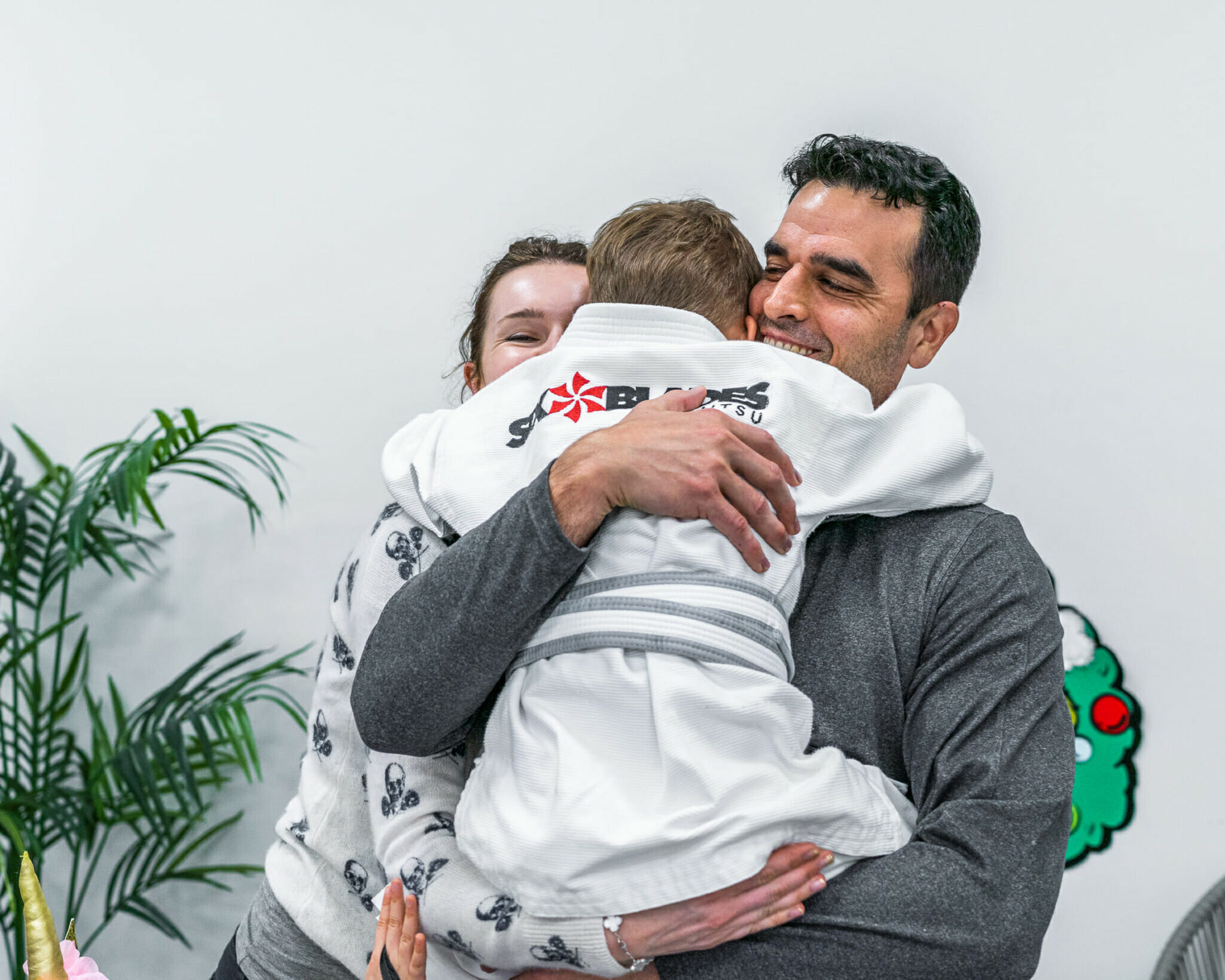Six Blades Jiu Jitsu Denver
Kinder (3-4 Years Old)
The curriculum includes fun games and interactive drills that teach basic Jiu Jitsu movements and beginner techniques, ensuring a strong foundation and better understanding of our art, while maintaining his/her interest and keeping it enjoyable for your youngster. Instructors also promote and reinforce strong core values through simple and easy-to-follow methods. The Kinder program is the perfect introduction to Jiu Jitsu for preschoolers, ages 3-5. In these playful classes. Once they learn the basic techniques and build their confidence in Kinder, they’ll be ready to transition into Little Champs (ages 5-7) classes.
-
Motor Skills Development:
-
- BJJ involves various movements that can enhance a child’s gross and fine motor skills.
- Rolling, crawling, and basic grappling movements help in developing coordination and body awareness.
-
Discipline and Focus:
-
- Learning and practicing basic BJJ techniques can promote discipline and focus in young children.
- Following instructions during drills and exercises helps cultivate attention and concentration.
-
Social Skills and Cooperation:
-
- BJJ classes often involve group activities, fostering social interaction and cooperation.
- Partner drills and exercises encourage communication and teamwork.
-
Confidence Building:
-
- Achieving small milestones in BJJ, such as mastering a basic movement or earning a belt stripe, can boost a child’s self-confidence.
- Positive reinforcement in a supportive environment contributes to a sense of accomplishment.
-
Respect and Sportsmanship:
-
- BJJ teaches fundamental values such as respect for instructors, training partners, and the rules of the sport.
- Emphasis on good sportsmanship promotes a positive attitude towards competition and learning.
-
Problem Solving and Critical Thinking:
-
- BJJ involves strategic thinking and problem-solving as practitioners navigate through positions and transitions.
- Encouraging creativity in movement helps develop critical thinking skills in a playful context.
-
Physical Fitness:
-
- BJJ promotes physical activity and helps in developing strength, flexibility, and cardiovascular endurance.
- Engaging in playful exercises and movements contributes to overall physical fitness.
-
Emotional Regulation:
-
- BJJ can provide a constructive outlet for excess energy and help children learn to manage their emotions.
- Controlled physical contact and the discipline of the sport contribute to emotional regulation.
-
Body Awareness and Balance:
-
- BJJ requires a heightened sense of body awareness, which can positively impact a child’s spatial orientation and balance.
- Learning to control movements and balance on the mat enhances overall body coordination.
-
Fun and Enjoyment:
-
- The playful nature of BJJ classes for young children ensures that they have fun while learning.
- Enjoying physical activity at an early age can establish a positive attitude toward exercise and healthy living.
 Kinder (3-4 Years Old)">
Kinder (3-4 Years Old)">